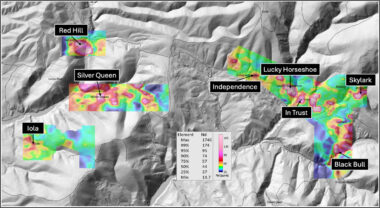Australian farmers are becoming climate change innovators by making significant strategic decisions such as planting crops at different times to normal to better position their businesses and accommodate climate change uncertainty, new research shows.
According to the research conducted by Charles Darwin University (CDU) PhD student David McKenzie, farmers are doing amazing things in how they think, manage and act in relation to business viability, infrastructure-technology and farm operations-practices to combat the stressors of extreme climatic conditions.
The impacts of extreme climate events including heat waves, drought and flooding rainfall are causing significant social, economic, and ecological disruptions to global systems of farming and food production.
Mr McKenzie said Australian farmers need to be prepared to adapt to the current challenges of climate change.
“The uncertainty of climate change is a significant challenge which is prompting Australian famers to think differently to ensure business success, particularly in extreme environments,” Mr McKenzie said.
“Unless farmers are ready to build resilience and adaptively manage the risks associated with climate change, the viability of farming in certain locations may not be sustained.”
As part of his PhD project, Mr McKenzie spoke with 22 farmers across eastern Australia who represent a variety of industries including livestock and cropping to learn how they had adaptively responded to limit the impacts of climate change on their farming business.
“These farmers are at the cutting edge of responding to current challenges and preparing for future challenges through innovative transformations,” Mr McKenzie said.
“The transformations arise from game changing events of mini crises such as heatwaves and droughts, because things aren’t working well or from the social influence of group participation and farm advisors.”
The farmers identified emerging shifts in rainfall and temperature patterns of climate variability patterns and extreme and unprecedented climate events which forced them to adapt their growing models.
“Farmers saw massive rainfalls that would last for one month then they wouldn’t see rain for four to five months at a time, so they needed to change the way they grazed in order to harvest the rainfall,” Mr McKenzie said.
“The farmers adapted their processes to better accommodate growing crops in the non-growing season rainfall episodes and intense hot dry season rainfall events outside the usual growing period.”
They also expressed concern about the intensity and increasing regularity of fires, heatwaves, and flooding, with these all impacting the viability of farming.
“To counteract these continued environmental risks, the farmers strategically looked at a range of solutions including altering the scale of their farm, being flexible with crop and/or animal substitution and even relocating,” Mr McKenzie said.
The famers also expressed the importance of making sure they have financial reserves to buffer against the variability in the changing climate.
“The farmers I interviewed had a range of different strategies and forms of financial reserves to support them during the times when the climate is challenging,” Mr McKenzie said.
“For example, one farmer sells stock to provide equity, another has money invested with a financial advisor in a farm management deposit, while others reinvest profits back into the farm.
“Overall, what is clear from this research is that farm businesses need to be innovative, strategically positioned and managed to keep in step with the adaptive demands of evolving climate change.”
For more information on the research findings see; Eastern Australian Farmers Managing and Thinking Differently: Innovative Adaptation Cycles.
Contact details:
Emily Bostock
Acting Research Communications Officer
T: +61 8 8946 6529
M: 0432 417 518
E: media@cdu.edu.au



